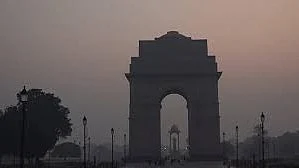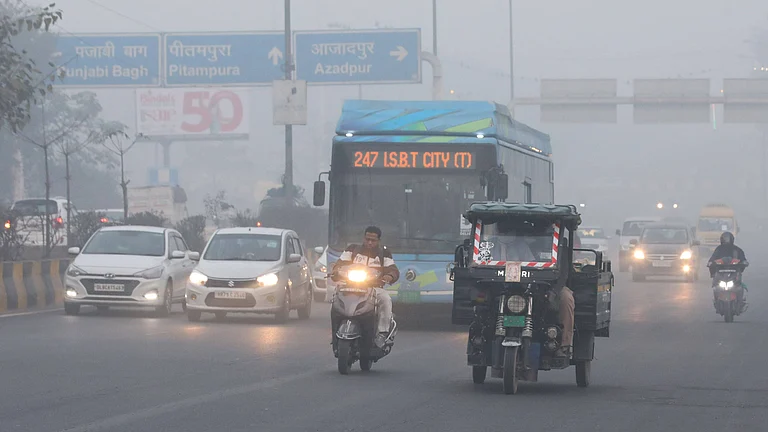Delhi experienced its warmest winter day on January 19, recording a maximum temperature of 26.1 degrees Celsius—the highest in January over the past six years, according to the India Meteorological Department (IMD).
This spike in temperatures was caused by a prevailing western disturbance in the Himalayan region, as reported by HT. The minimum temperature was also above normal, by around two notches, at 9.2 degrees Celsius.
The last time the maximum temperature was higher was reported on January 21, 2019, when it reached 28.7 degrees Celsius, according to HT. Conversely, the lowest maximum this winter season was 14.6 degrees Celsius on December 27, 2024.
Despite the rise in temperatures during the day, January 19 saw moderate to dense fog which impacted visibility and disrupted travel, reported Business Standard.
Meanwhile, the Commission for Air Quality Management (CAQM) revoked Stage-III measures on January 18 under the revised Graded Response Action Plan (GRAP) as AQI levels showed a declining trend towards Sunday evening, falling to 368 by 4 p.m., against AQI of 255 ("poor") on January 18. However, Stage-I and Stage-II measures have been intensified to prevent further degradation of air quality.
Forecast for the Next 2 Days
AQEWS' latest bulletin indicated that Delhi's ventilation index, which measures the atmosphere's potential to disperse air, is predicted to be 3500 m2/s today, 3100 m2/s tomorrow and 600 m2/s the day after.
Forecast for January 21: Wind speed is expected to less than 10 kmph during the morning. Thereafter, it is expected to dip to less than 10-12 kmph during the afternoon and dipping to less than 8 kmph from northwest direction during evening and night. The AQEWS has also forecast smog and shallow fog conditions during the evening and night.
Forecast for January 22: Wind speed is likely to be less than less than 4 kmph during the morning, improving slightly to 6-8 kmph during the afternoon hours, and dipping to less than 6 kmph during the evening and night. Smog and fog conditions are predicted during the evening and night. Possibility of very light rain is expected towards evening and night.
AQEWS, which is a real-time monitoring system tracking air quality and visibility levels, also said that Delhi's air quality is projected to be "poor" until January 21. The air quality is likely to be in “very poor” category on January 22 . Thereafter, from January 23 onwards, Delhi's AQI is expected to be in the “poor” to “very poor” category for the next six days.
Although foggy conditions persist, the IMD has ruled out the possibility of a cold wave in Delhi-NCR or North-West India in the coming days.































